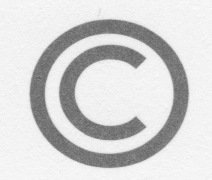There’s been a lot of controversy lately on teenage/YA fiction and the themes of violence it can incorporate. What are the accepted age ranges for both and how might they differ in the UK and USA? A Cornerstones author, JB Toner, raised questions about this to our managing editor, Kathryn Robinson; this is how the conversation went:
JBT: Please thank your editor for her thoughtful and very thorough report.
I need clarification on age groupings.
The new book that I'm working on is aimed at teenagers (maybe 14+). I thought this was what is meant by ‘Young Adult’, but if this market is the age-group (12+) I need to know that before I write any more.
KR: Thanks for your email and I’m really pleased to hear the report seems helpful. ‘Teen’ and YA is usually seen as being 12/13 to 15 years old.
JBT: Just to be absolutely clear about this point, are you saying that 'teen' and ‘YA’ are the same market - 12/13 to 15? I would have thought ‘teen’ might be 12-15 year olds, whereas Wikipedia defines YA as 14-21. Would you agree with that? Also, are you familiar with The Hunger Games by Suzanne Collins? There is a lot of killing in that book and yet the book is labelled ‘teen’ on the back cover. I read somewhere (can't remember where) that the trilogy is thought suitable for 12 year olds.
KR: In the UK ‘teen’ and ‘YA’ are the same market – very generally described as12-15, although readers outside these ages will inevitably read these books too. I think there’s a difference in the US, which may be where the wiki definition comes from (and I think the ‘teen’ definition is used more there, too, whereas 'YA' is more common here); there’s a much more defined ‘teenage’ culture in the States, and their ‘teen’ reading age bracket encompasses this. The Hunger Games (of which the second book in the trilogy is in my bag right at this moment!) is marketed as ‘teen’ fiction – so12-15 in the UK. Yes, there’s a lot of killing - the genre is, I guess, dystopian horror – whereas certain other genres – historical, traditional fantasy, romance – would tend to be a bit tamer in terms of violence (the same rule applies to adult fiction).
See below an event that might be of interest to authors who write teen/YA fiction.
Tuesday 5th July 2011
BOUNDARIES – Who Killed Controversy?
An insight into the future of teen publishing. With guest experts from across the publishing industry.
An insight into the future of teen publishing. With guest experts from across the publishing industry.
Venue: 80 Strand, London (click for a map)
Members: £0
Non-members: £5
For membership information, please visit the members’ section.
